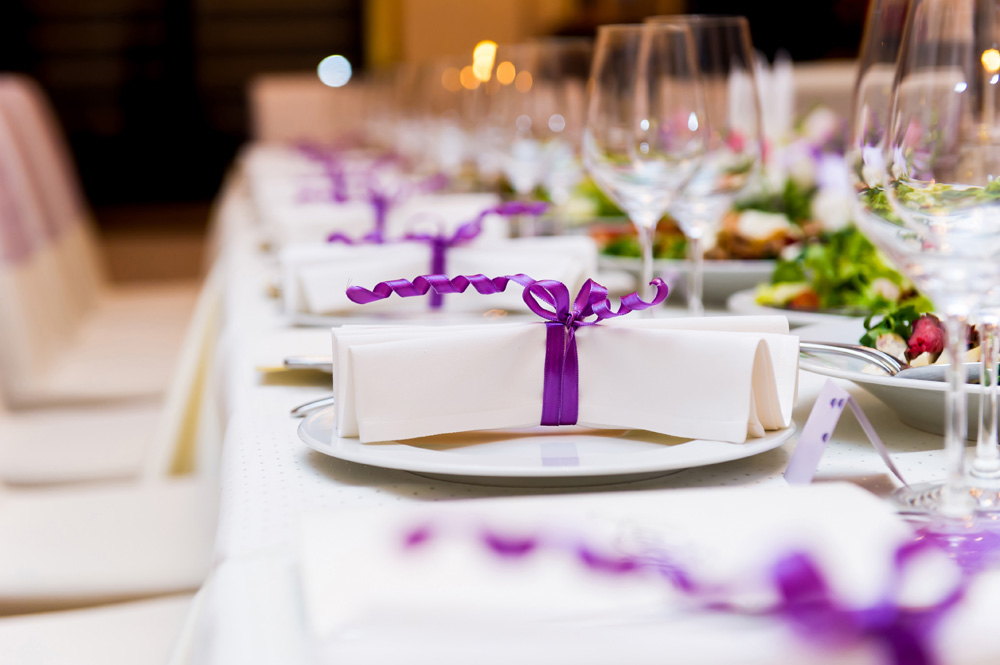
Weddings are wonderful occasions to celebrate love and a new beginning, especially with your family and friends. But at times, they can turn into a real nightmare, where the guests might be offended or the newly married couple are drained by the lack of courtesy of some guests.
Abiding by some of the rules below will ensure you not only enjoy your special day but will also make this experience a less stressful event for everyone else.
Invitation Cards

It is vital to send out invitation cards well in advance. When you do set the date, you need to inform the invitees four-five months ahead of time so they can “save the date”. Then, the actual cards can be sent four-six weeks before the celebration date.

As an invited guest - when you receive the invitation card - you need to answer as soon as possible; that is seven to 10 days after receiving it. Do not leave it till the last minute, as the organisers need to know the number of people attending so they can make the proper arrangements or allocate your seat to another guest. When you say you are attending, never cancel last minute or send someone in your place without letting the bride or organisers know in advance.
Dress Code
As a guest, and especially the women, it is very important to realise that white is specifically reserved for the bride on that day. Bridesmaids should consult with the bride about the fixed colour code.
As the bride, you may wish to take a second white dress, maybe a cocktail dress, in case your original dress is torn or spoilt.
Seating Protocol

As the bride or organiser, always make sure the seating arrangements are done according to protocol. This means those closest to you, senior members of the family and the VIP guests, feel special and appreciated by placing them either on your table or near your table. I am sure many still complain or feel offended no matter what you do! Place your friends with other young people so they can mingle and enjoy their time.

An additional thought would be to have a theme for the tables, such as if the bride and groom are writers they can have the names of famous writers on each table, or maybe even have different flower names as well as jewellery where they can have names of precious stones, such as Diamond, Ruby, Emerald, Sapphire, etc.
Uninvited guests
When the wedding card states that you and one companion are invited, do not bring anyone else such as your children or parents. If the card specifically mentions you and your family then all those in your household are also invited.
If you need to bring an uninvited guest such as your children or a house guest, you are obliged to ask the organisers first, which is a little embarrassing especially if you do not know the bride and groom that well. You can hint at your reason for not being able to make it to the wedding and leave it to the hosts to make a gesture of goodwill and invite them.
“Thank you” Notes

Last but not least, as the newly married couple, you need to send out a “Thank you” note to all those who attended, especially to those who sent you a gift. It is preferable to make it personal and written in your handwriting. If this is too much for you, then at least leave a personal message of appreciation.
Gifting dilemma
Gifts can be given before the wedding or after, never at the wedding, especially cash gifts. If you want to give before the wedding, it should be sent to bride’s home. If you prefer to give after the wedding there are a few ways to do this according to the wishes of the couple, such as a wedding list at a specified retailer. Some couples even opt for a travel agency to cover some honeymoon costs or a bank account for those living abroad and do not wish to carry excess baggage of household goods.
Personally, I always prefer the old fashioned personalised gift, which they can use in their new home, such as silverware, crystal, china, espresso machine, etc., as gifts should always be a thoughtful gesture before anything else. You can have up to three months to send them a gift but not more and the sooner the better.
Selfies and Weddings
1- As the bride, don’t take selfies at your reception or during the ceremony, as your main concern is the groom and your guests, not taking selfies and posting them on Instagram.
2- If you are a guest, remember you are a guest and not the photographer. Snapping a few shots in fine, but asking the couple to pose for photos and getting in the way of the actual photographers is inappropriate and annoying.
3- Don’t share all the photos on social media and be selective in what you post. You can post your own photos, but need to take permission of those in the photos in advance.
4- Don’t share photos or selfies of the bride at the pre-wedding preparations where she is getting ready, this is time shared with her closest and should be respected.
5- Finally, it is better to give your time to sharing these special moments with the bride and groom, live instead of taking selfies, a phenomenon found by psychologists to be damaging to your relationships with others and a definite anti-social activity.
Sonya J. Sabbah is an executive coach, image consultant and corporate etiquette trainer. She is also the author of “Etiquette in the City: Beirut”. Click here to find out more about her consultancy.

















